Graduate Student Showcase
The Certificate of Advanced Study (CAS) in Women’s and Gender Studies is a 12-credit graduate-level certificate that can be taken as a stand-alone certificate or as part of a graduate degree program. Students enrolled in the certificate come to the program from various disciplinary and training backgrounds. They are researchers whose work is informed by feminist theories from multiple and intersecting perspectives. They work closely with core and affiliated faculty in the department through enrolling in graduate level courses, becoming teaching and research assistants in the program, participating in extra-curricular events and programs, and being part of the feminist and Women’s and Gender Studies community at SU.
There are currently over 45 graduate students enrolled in the certificate program. We are proud to feature some of our students here. Their work presents cutting-edge scholarship in the field and extends our commitment to supporting interdisciplinary feminist research at SU.
If you are a currently enrolled student who is interested in having your work featured here, or if you would like to learn more about the program and/or enroll in the certificate, please reach out to the Director of Graduate Studies, Dr. Dana Olwan at dmolwan@syr.edu. We welcome all inquiries.
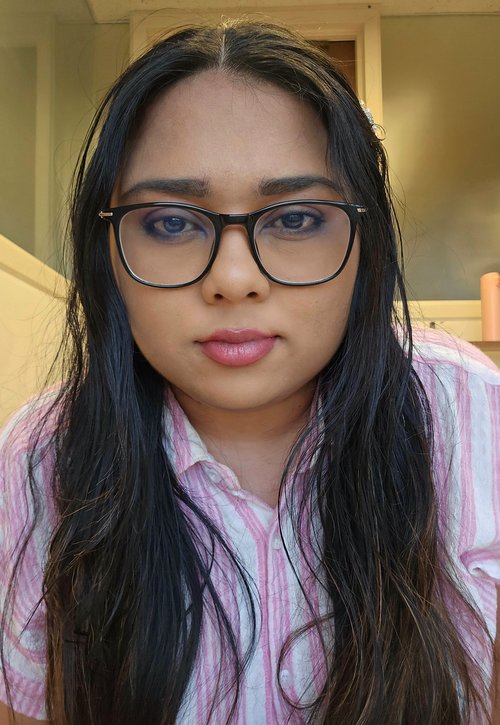
Name: Karisa Krystal Bridgelal
Bio: I am a Ph.D. candidate in Composition and Cultural Rhetoric. My research interests include Caribbean rhetorics and transnational feminisms. Specifically, I examine East Indian indentureship and Indo-Caribbean women’s rhetorics as sites of cultural memory, resistance, and identity-making.
Department/Program: Composition and Cultural Rhetoric
Dissertation Title: Wuk: Embodied Knowledge, Reclaimed Labor, and Liberated Futures in Indo-Caribbean Women’s Rhetoric
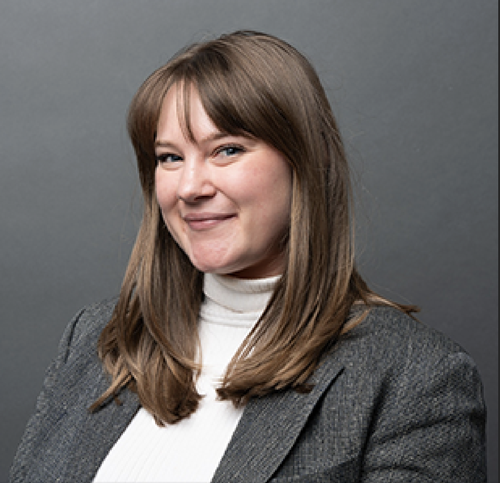
Name: Shannon Burth
Bio: Shannon Burth (she/her/hers) is a 3rd year Ph.D. student in the Mass Communications program. She is currently a member of the CODE^SHIFT research team, where she works on projects at the intersection of representations identity in media, critical media literacy, and activism. Recent publications include the coauthored Equitable Media Literacies Pedagogies and Practices for Healthy Civic Futures. She is also passionate about undergraduate teaching, mentorship, and media education, and she is currently teaching the Department of Mass Communication’s upper-level Race, Gender, and the Media course.
Department/Program: Mass Communications

Name: Bailey Dineen
Bio: I am a Ph.D. candidate in Religious Studies. I’m interested in theorizing the ways that the state alters or replaces the social relations in which religious ideologies take shape. I am specifically interested in measuring the effects of the state on indigenous religions and use the philosophies of Marx, Althusser and Foucault to think through this dynamic.
Department/Program: Religion
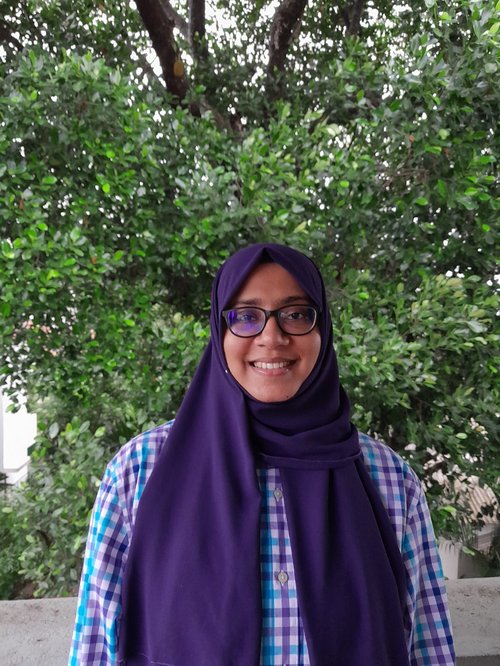
Name: Tasneem Hamead
Bio: Tasneem is a Ph.D. candidate in the Department of English. Her research centers on narratives of postcolonial minoritized Muslim bodies situated at the intersections of history, land, civil war, and “reconciliation.” She turns to film and literature to reflect on such voices, drawing on frameworks of trauma and memory in conversation with contemporary politics and popular discourse. Her work traces Muslim futurities and feminist possibilities that emerge both against and in response to the (transnational) legacies of colonial cartographies.
Department/Program: English
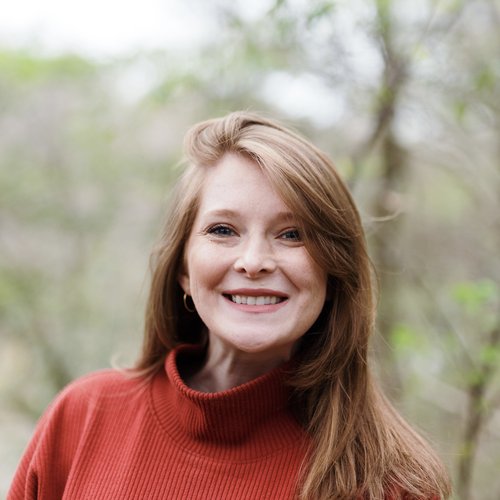
Name: Amanda M. Kingston
Bio: Amanda M. Kingston (she/her/hers) is a Ph.D. Candidate in Cultural Foundations of Education and is a Women's and Gender Studies C.A.S. Student. Her research draws from eco-justice studies, ecofeminist inquiries, peace studies, postcolonial studies, and collective memory studies along an interdisciplinary foundations of education approach. She currently works within the Intergroup Dialogue Program at Syracuse. She has worked as a classroom and community educator since 2012.
Department/Program: Cultural Foundations of Education
Dissertation Title (working): Pre-service Teacher Experiences with Ecofeminist Contemplative Practices, Ecojustice Learning, and Consciousness-Raising Possibilities
Abstract:
In this dissertation, I explore how pre-service teachers experience contemplative experiences related to ecojustice (environmental justice) learning. The project’s purpose is to understand 1) how pre-service teachers make meaning of ecojustice learning, 2) how pre-service teachers make meaning of ecofeminist contemplative experiences, and 3) how ecofeminist contemplative experiences might offer consciousness-raising possibilities for ecojustice learning. I propose an ecofeminist contemplative methodology to frame my research design which blends qualitative methods including dialogic inquiry, contemplative inquiry, walking methods, reflective inquiry, and autoethnographic methods. In the project, I will form an ecojustice learning group with pre-service teachers as my co-participants. We will meet in a local park to dialogue about the histories of land, environmental justice and social justice, and engage in ecofeminist contemplative experiences. This research addresses gaps in teacher education around environmental justice by addressing this as both/and a social justice issue by bridging contemplative and ecojustice pedagogies with ecofeminist consciousness-raising. Ultimately, this study 1) proposes ecofeminist contemplative experiences as core to ecojustice learning and 2) contributes knowledge on how ecofeminist contemplative frameworks support teacher education.
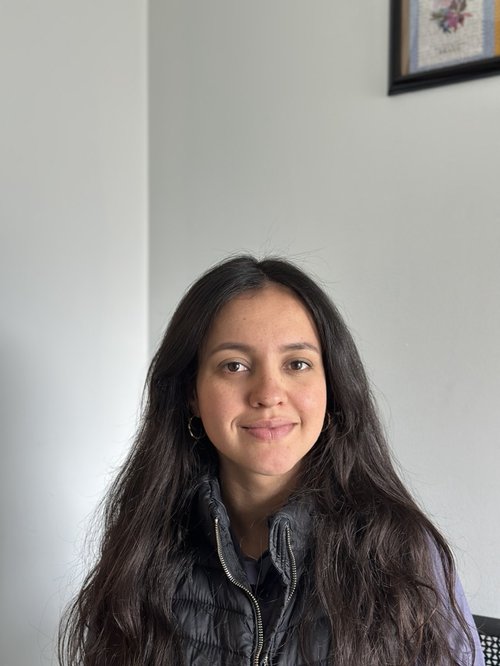
Name: Débora Ferreira Leite
Bio: I am a second-year master’s student in Communication and Rhetorical Studies. My research interests include Latina Studies, care labor, and popular culture.
Department/Program: Communication and Rhetorical Studies
Thesis Title (working): Affective Labor and Deservingness in Global Care Economies: A Comparative Film Analysis in Brazilian and U.S. Cinema
Abstract:
This project examines how Brazilian and U.S. films represent Latina women’s care labor in relation to the American Dream and ideals of social mobility. Analyzing Knives Out (2019) and Diários de Intercâmbio (2021), I trace how both films position immigrant women as caretakers navigating aspiration, exploitation, and affective labor. Drawing on scholarship in global care economies, Latina/o/x representation, the American Dream, and transnational cinema, I use comparative textual analysis to explore how cinematic form produces cultural narratives of race, gender, and labor. I argue that popular cinema functions as a transnational site where nations imagine one another and negotiate cultural logics of belonging. By placing U.S. and Brazilian films in dialogue, this study reveals how media circulates ideas about deservingness and care work across borders, shaping who is seen as a “good” immigrant and exposing the contradictions at the heart of global care economies.

Name: Abigail Long
Bio: Abigail Long (she/her) is a Ph.D. Candidate in Composition and Cultural Rhetoric and a 2025-2026 Humanities Center Fellow. Her research focuses on feminist pedagogy, disability, materiality, and writing processes. Abby is passionate about teaching writing courses, mentoring graduate teaching assistants, and advocating for community care. Her recent work is published in the journal Peitho, and she is a co-editor of the edited collection Rhetorica Rising: Feminist Rhetorical Methods for Social Change (U South Carolina P, 2025).
Department/Program: Composition and Cultural Rhetoric
Dissertation Title: (Re)Composing Friction: Writing Beyond the Seams
Abstract:
Disability justice advocates have long argued that everybody has different access needs (Hubrig, Piepzna-Samarasinha, Price, Sins Invalid). Despite our field’s stated commitments to accessibility in the writing classroom and to multiple composing practices, we tend to rely on a one-size-fits-all writing process that disincentivizes any traces of struggle (Ahmed, Cameron, Dolmage, Hitt). Building on scholarship in disability studies, feminist ethics, material rhetorics, and writing processes, this dissertation invites us to interrogate our understanding of accessibility through the lens of friction. What happens when writers get stuck in the composing process? How do different forms of friction—embodied, affective, temporal, and material—shape our composing processes? How might disabled writers’ insights into friction in the composing process reconfigure our understanding of accessibility in pursuit of disability justice? In conversation with scholarship by Sara Ahmed, Paula Cameron, Laura Micciche, Margaret Price, and M. Remi Yergeau, I argue that critical engagement with friction in the composing process creates space for writers to negotiate for access, cultivate agency, and gain traction. Drawing on quantitative, qualitative, theoretical, autoethnographic, and material methods (including sewing and embroidery), I map encounters with friction in the composing process across a variety of sites: writing pedagogy, scholarly texts, teacher-selves, and intersectional coalitions for disability justice. Understanding the many functions of friction in the composing process through a disability perspective can illuminate more accessible avenues for knowledge-making and inclusive writing pedagogy (Dolmage, Kerschbaum, Mills and Sanchez, and Smilges). To identify moments of friction, I turn to the “seams” of composing—the places where we make procedural, craft, and creative decisions in the writing process. I argue that examining these seams can illuminate underlying ableist assumptions about “stuckness” and the epistemological implications of those attitudes within the academia and beyond. Because systemic ableism is wielded as a tool of oppression across a spectrum of intersecting identities, we need a wide range of approaches to challenge disability stigma and re-story narratives about crip composing. Learning from scholarly approaches to disability and accessibility from across the humanities (including Ahmed, Cedillo, Garland-Thomson, Hendren, Hubrig, Miller, Piepzna-Samarasinha, Price, and Schalk), this dissertation’s multifaceted examination of friction in the composing process can resonate with teachers and writers in a variety of fields.
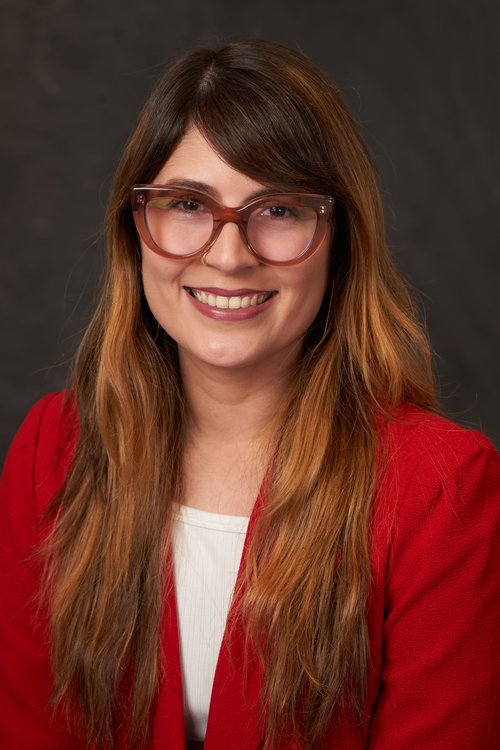
Name: Julissa Collazo López
Bio: Julissa Collazo López is a Puerto Rican Doctoral Candidate in Anthropology and Historical Archaeology and a Graduate Research Associate at Syracuse University’s Program in Latin America and the Caribbean (PLACA). She holds a master’s degree in Nautical and Underwater Archaeology from the University of Cádiz and a bachelor’s degree in Anthropology with a concentration in Archaeology from the University of Puerto Rico, Río Piedras. Her research topics include mercantilism in Puerto Rico during the 16th century, early Spanish settlements in the Caribbean, and decolonial feminist studies. Her doctoral dissertation focuses on the Spanish settlement of Puerto Real (1503-1578), gender dynamics, and their representations in archaeological and museological narratives.
Department/Program: Anthropology
Dissertation Title: Gendering and Performance in Early Spanish Colonies: Order and (dis)Order at Puerto Real (1503-1578), Haiti
Abstract:
This dissertation examines how gender was constructed, regulated, and at times disrupted in the early Spanish colonial settlement of Puerto Real (1503–1578), in present-day Haiti. Drawing on decolonial feminist theory—particularly the concept of the coloniality of gender—it explores how the Spanish colonial regime imposed gender as a tool to differentiate “proper” subjects from those deemed non-human or ungendered. Through a critical reanalysis of artifacts related to clothing and adornment (beads, bells, jewelry, sewing items), the project traces how these materials reflect both colonial control and gendered alterity. The research also interrogates how museum practices have reinforced colonial gender categories through curation and classification. By expanding the assemblage to include archival documents, curatorial decisions, and researcher worldviews, the project challenges essentialist readings of gender in archaeology and offers a more reflexive framework for interpreting colonial material culture.

Name: Simran Sumbre
Bio: Simran is from the outskirts of Mumbai, India and she is a Ph.D. student in the Geography and Environment department. Her research examines the relationship between caste, patriarchy, and environmental distress in drought-prone regions of Maharashtra, India. Specifically, she centers
Dalit women farmers and their life stories to explore unequal access to groundwater and land for agriculture, and its connection to the reproduction of caste as a system of gendered domination. Her research considers the epistemological position of Dalit women farmers as fundamental to the analysis of India’s groundwater and agrarian distress. When she is not doing academic work, she enjoys cooking, swimming, and dancing with her friends.
Department/Program: Geography and the Environment
